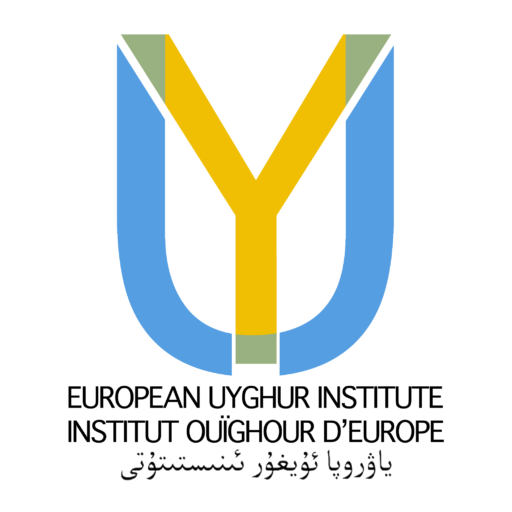The Institute is very pleased to present its scientific committee, composed of researchers from multiple disciplines, working in different universities around the world, and specialising in the Uyghur region and its people.
Rachel Harris
Rachel Harris is Professor of ethnomusicology at SOAS (School of Oriental and African Studies). She has conducted extensive fieldwork in China and Central Asia, her primary research subject being the Uyghur people. Her most recent book, for which she won the 2022 BFE Book prize, is entitled Soundscapes of Uyghur Islam (Indiana University Press, 2020). It focuses on the religious practice of a group of Uyghur women in a small village, exploring the spiritual and political geographies they inhabit. Her current research focuses on intangible cultural heritage, music and Islam, soundscapes and state projects of territorialization and she is principal investigator in the Uyghur Meshrep Project.
Sam Tynen
Sam Tynen obtained their PhD in Human Geography in 2019 and was then a postdoctoral research fellow at the Czech Academy of Sciences working on a book titled Fear, Hope and Survival in Xinjiang: Uyghur Life in China’s Military Police State. The book chronicles the Chinese government’s escalation of state terror and political control over the region and its citizens, describing the increase in surveillance, securitization, and militarization of everyday life. They have also done other work based on extensive fieldwork in the region. Their current project focuses on LGBT issues in Central Asia.
James Millward
James Millward is Professor of Inter-societal History at the Walsh School of Foreign Service, Georgetown University. He teaches Chinese, Central Asian and world history. He also teaches in the program of the Máster Oficial en Estudios de Asia Oriental at the University of Granada, Spain. He is a historian of the Uyghur homeland, as well as a specialist of the Qing dynasty, and most recently has published a new and augmented edition of his book Eurasian Crossroads (Hurst & Company, 2021). He is currently working on the history of Eurasian lutes.
Darren Byler
Darren Byler is an Assistant Professor of International Studies at Simon Fraser University. He is a sociocultural anthropologist whose teaching and research examines the dispossession of stateless populations through forms of contemporary capitalism and colonialism in China, Central Asia, and Southeast Asia. His most recent book, Terror Capitalism: Uyghur Dispossession and Masculinity in a Chinese City (Duke University Press, 2021), examines emerging forms of media, infrastructure, economics and politics in the Uyghur homeland. His current research considers how contemporary capitalism and colonialism travels through digital infrastructural systems from China to Malaysia.
Eric Schluessel
Eric Schluessel is an assistant professor of modern Chinese history at the George Washington University. He is a social historian of China and Central Asia, and his work focuses on the Uyghur region in the nineteenth and twentieth centuries. His most recent bookLand of Strangers: The Civilizing Project in Qing Central Asia (Columbia University Press, 2020), uses local archival and manuscript sources in Chinese and Chaghatay Turkic to explore the ramifications of a project undertaken in the last decades of the Qing empire to sinicise the indigenous inhabitants of the Uyghur homeland. He is currently translating the Tārīkh-i Ḥamīdī of Mullah Mūsa Sayrāmī, which is an important Chaghatay-language chronicle of nineteenth-century Xinjiang. Ongoing research builds off of this and other manuscript, documentary, and memoir sources to reconstruct an economic history of Xinjiang from below. He is doing this alongside another project, Exiled Gods, which delves into Han Chinese settler culture and religion to illuminate the history of a diasporic community of demobilized soldiers and their descendants that spanned the Qing empire.
Vanessa Frangville
Vanessa Frangville is Senior Lecturer and Chair Holder in China Studies at the Université libre de Bruxelles (ULB) and is the director of ULB’s research centre on East Asia. Her research deals with cultural policy and audio-visual production in the People’s Republic of China. She has published several articles on cinema about Chinese “minority” or “non-Han” ethnic groups, including articles on Tibetan cinema. Her current projects deal with cultural and artistic expressions of trauma and nostalgia in the Uyghur diaspora since 2018, with a focus on performative and audio-visual arts. She co-edited the book China’s Youth Cultures and Collective Spaces: Creativity, Sociality, Identity and Resistance, to which she further contributed the chapter “Representations of Sociability in Public Spaces in the Uyghur Web Series Anar Pishti: Resilience, Resistance and Reinvention”. She also co-edited a recently published book on Uyghur literature.
Dilnur Reyhan
Dilnur Reyhan is a doctor of sociology. She teaches Uyghur language and civilisation at the National Institute of Oriental Languages and Civilisation (INALCO). Her work explores questions of identity, nationalism and gender in the Uyghur diaspora. She is president of the European Uyghur Institute and has been very engaged in activist work since the start of the Uyghur crisis in 2017. She is currently writing a book for the general public on the Uyghur genocide.
The scientific committee was also honored to count Dru Gladney as one of its members.
Dru Gladney was the President of the Pacific Basin Institute and Professor of Anthropology at Pomona College, California. He was a specialist in the peoples, cultures and politics in Eurasia—in particular, issues of globalization and transnationalism in China and its close neighbours. He was interested in Islam in China and is particularly known for his book Dislocating China: Muslims, Minorities, and Other Subaltern Subjects (University of Chicago Press, 2004). Over the last few years, he engaged in a large comparative survey of nomadic families in Western China, supported by in-depth fieldwork with nomadic Kazakhs in the Altai Mountains which mark the border between China and Mongolia.
